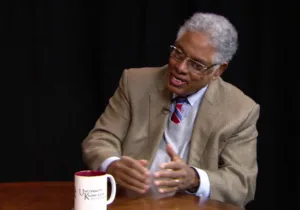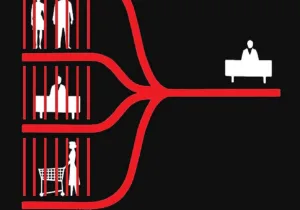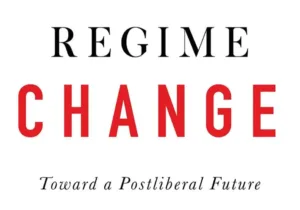On October 19th, 2022 four leading intellectuals gathered with Harper’s Magazine editor Christopher Beha for a discussion on classical liberalism. While all agreed with the premise that liberalism is increasingly under attack, up for debate was whether the liberal paradigm was worth saving at all.
The speakers included Patrick Deneen, known for declaring liberalism’s failure, Francis Fukuyama, known for declaring in the early 90s that liberalism had won for good, Christian socialist Cornel West, and libertarian economic historian Deirdre McCloskey. The line-up lacked one particular perspective, however: that of the conservative liberal; one who is classically liberal in a political and economic sense but culturally conservative.
Each of the four participants defined liberalism differently. Fukuyama’s liberalism is about a “fundamental recognition of individual rights,” based on a “presumption of basic equality of dignity” in connection with modern science. To Deneen, liberalism rejects the idea “that human beings have a telos, or an end, that we have a nature, and that the first is given to us by the second.” In Deneen’s account, liberalism is a break with the classical tradition, as represented by Aquinas and Aristotle.
The battle lines are drawn, apparently: Fukuyama is for liberalism, Deneen against it. West, in contrast, is more nuanced; he praises liberalism for recognizing “indispensable rights and liberties”, but faults it for turning a blind eye to economic and military oppression. Finally, McCloskey provides the most straightforward defense of liberalism, defining it as “equality of permissions.”
At this point the reader may expect the three liberals to gang up on the one anti-liberal. Not so. The liberals concede several crucial points to Deneen’s anti-liberalism. McCloskey “would agree with Patrick (Deneen) that liberalism is a rebellion against—well, against the church.” This is a striking claim from McCloskey, who is better known for insisting on the basic compatibility of what she calls “bourgeois virtues” with traditional morality.
While it is certainly true that all liberal thinkers would oppose the domination of the state by a single church, it is not the case that all liberals rebelled against religion. Alexis de Tocqueville, for example, believed that religion was essential, and that keeping it separate from government would encourage its sustainment. So did Adam Smith.
Deneen then exploits the differences of opinion among his interlocutors, claiming that “Untrammeled liberty in economic and social spheres results in deep social and political cleavages.” Populist anti-liberalism is “blowback” to the excesses of liberalism.
It’s hard to find much evidence to support Deneen’s story. As Oren Cass wrote in 2019, “market fetishism does not provide the basis for U.S. economics or public policy… it is not as if a bunch of market fundamentalists have actually cut back government provisions.” Instead, government regulation has continued to increase year after year, even under administrations verbally committed to deregulation. American liberty persists, but is hardly “untrammeled.”
And still, Fukuyama affirms Deneen’s account. In so doing, Fukuyama errs empirically and philosophically. Empirically, he blames financial deregulation for the 2008 economic crisis. This overlooks numerous complicating factors: the government’s role in generating the housing bubble the preceded the Great Recession of 2008, and the long series of financial bailouts preceding the 2008 crisis that encouraged risky lending.
In rejecting economic liberalism, Fukuyama hopes to preserve political liberalism. He thinks that a system of equal individual rights can survive under increasing government control of the economy. But as McCloskey notes, “liberty is liberty is liberty.” In the real world, it’s not possible to cleanly separate economic liberty from other forms of liberty. All human behavior involves economic decision-making and financial accounting, even charity and religion. To increase government control over individual economic decisions is to increase government control over all decisions.
McCloskey, the remaining economic liberal, fails to challenge Fukuyama and Deneen’s economic narrative. Instead, she focuses on a more tangential, but still important point about Milton Friedman’s conception of the social responsibility of business.
Deneen’s argument suffers from numerous other flaws, which the other speakers fail to rebut. He laments the lack of appreciation for order and hierarchy in liberalism, but then sides with mob rule against legal restraint. Deneen’s political thought is not workable in theory or practice.
He cagily says that “there’s always going to be some exercise of authority.” This is surely true, but it does not discount the fact that there are degrees of authority. Deneen tries and fails at eliminating the difference between liberty under the law and oppression under an authoritarian regime. Deneen presented so many openings for the liberals to exploit, and yet they failed to decisively act.
This was not a good showing for liberalism. What went wrong? The most significant problem was the absence of the conservative strain of liberalism.
Conservative liberalism is a core tradition in Western thought, critical to the development and sustainment of the American experiment in liberty. And while McCloskey did cite Adam Smith, she might have noted his warning that society will “crumble” absent “reverence for those important rules of conduct” which is naturally “enhanced” by the belief that “the Deity … will finally reward the obedient and punish the transgressors of their duty.” If Smith is correct about morality and religion, then a liberalism that explicitly rejects the traditional foundations of moral law is destined to collapse. Fortunately, hyper-rationalistic liberalism is not the only brand of liberalism available.
Conservative liberals have included Ronald Reagan, Friedrich Hayek, Frank Meyer, Alexis de Tocqueville, and Edmund Burke. In the present day, Samuel Gregg is a rare example of this tradition. Harper’s therefore cannot be faulted for omitting conservative liberals from the discussion. They merely mirrored the broader discourse.
To be sure, the idea of classical liberalism is still frequently cited. Classical liberalism, however, does not precisely denote conservative liberalism, since it is a broader tradition of thought. Increasingly “classical liberalism” used by disaffected men and women of the left who still value free speech and economic growth. This is a welcome development, but it cannot substitute for conservative liberalism.
John Stuart Mill was a classical liberal, if anyone was. Yet as Friedrich Hayek noted, Mill’s work suffers from the “cult of the distinct and different individuality.” And as usual Mill’s false conception of individualism eventually led him towards economic collectivism. Unlike Mill, a conservative liberal will recognize that social restraint is a necessary condition for liberty, as are faith, family, tradition, and ethical formation.
Conservative liberalism is a nuanced, practical approach to politics. It holds competing ideas in tension. This brand of liberalism is not, and likely never will be, an object of mass appeal. Nevertheless, without a cadre of conservative liberals to influence public opinion and policy in a more prudent and gradual direction, consistent with human nature, all attempts to save liberalism will fail, and deservingly so.
A Liberalism Worth Saving: What’s Missing From the Debate Over Liberalism
Providence is the only publication devoted to Christian Realism in American foreign policy and is entirely funded by donor contributions. There are no advertisements, sponsorships, or paid posts to support the work of Providence, just readers who generously partner with Providence to keep our magazine running. If you would care to make a donation it would be highly appreciated to help Providence in advancing the Christian realist perspective in 2024. Thank you!
Events & Weekly Newsletter Sign-up
Receive the weekly email for all the latest content.





 Live in the DC area? Sign-up for Providence's in-person events list!
Live in the DC area? Sign-up for Providence's in-person events list!